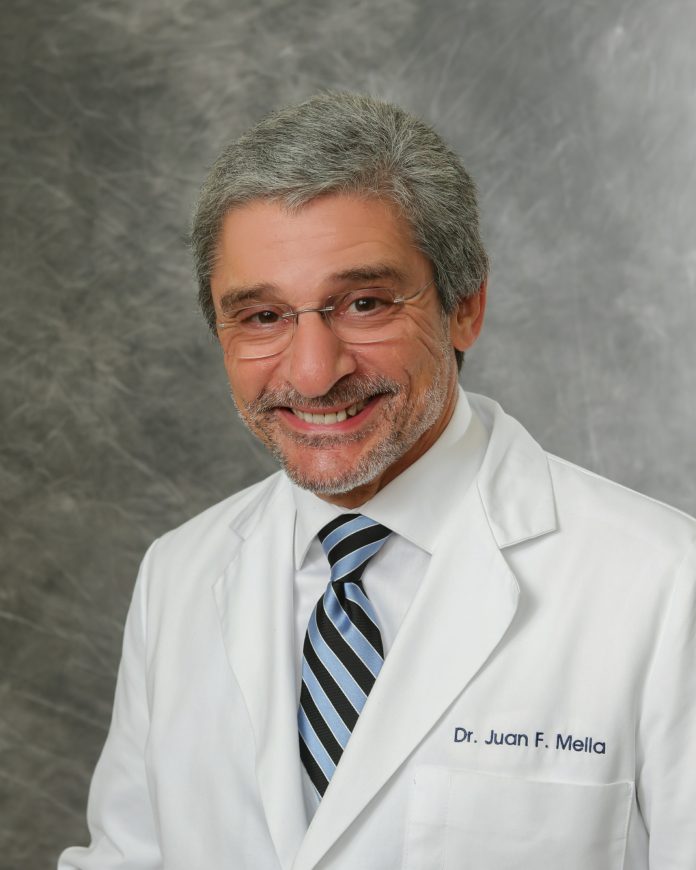Houston, MO— Seventy million Americans suffer from a sleep disorder. Ninety percent of sleep disorders remain undiagnosed, and for every undiagnosed sleep disorder the quality of life for that person is decreased.
Juan Mella, MD board-certified pulmonologist and sleep studies specialist, provides oversight of the sleep studies program at TCMH in conjunction with Lauren Toman, cardiopulmonary director.
“Not only does a sleep disorder decrease the quality of a patient’s life,” Toman, said, “Sleep disorders are linked to cardiovascular disease, diabetes glucose regulation, sudden death at night from fatal arrhythmia and increased morbidity and mortality.”
Risk factors for a sleep disorder include snoring, daytime sleepiness, obesity, hypertension and the use of hormone replacement therapy for menopause.
“The cycle of breathing at night leads to excessive daytime sleepiness, impaired concentration, memory loss and mood and behavioral changes,” Toman explained.
One of the best tools for detecting a sleep disorder is the basic sleep study, medically referred to as a polysomnogram.
Sleep studies are performed at special medical facilities set up as sleep laboratories. While a person sleeps in a room set up like a home bedroom, sensors are placed on the body to monitor how the body reacts while the person sleeps. A computer records physical measurements during sleep including brain waves, leg jerks, arousals and lack of breathing that can occur while the patient is sleeping.
TCMH opened a sleep studies laboratory in 2008 to accommodate the growing need for sleep studies in the area. The two-bed laboratory is part of the TCMH cardiopulmonary department.
“With our lab, area residents don’t have to drive long distances or wait a long time to get a sleep study,” Toman said.
TCMH does offer a simplified sleep study that gives patients the opportunity to stay in the comfort of their own home. While the in-home version does provide a large amount of data that helps diagnose sleep disorders, over half of the patients who opt for the in-home study end up scheduling a diagnostic study that must be completed in the TCMH Sleep Studies Laboratory.
Toman explained that patients should consult with their physician to see which test would be the best one for them.
There are six certified sleep therapists in the cardiopulmonary department that work in the sleep lab. Some of the therapists are cross-trained and certified to work as respiratory therapists as well as sleep therapists.
“With our therapists and with Dr. Mella, we have a dream team,” Toman said about the sleep lab staff.
The Sleep Studies Laboratory is open Monday through Friday each week, offering two sleep studies each evening, but are willing to accommodate patient’s schedules as needed.
A patient must have a physician’s order for a sleep study. Insurance, including Medicare and Medicaid, will cover a sleep study. Private pay options are also available for patients without insurance that use the TCMH Sleep Studies Laboratory.
Most patients arrive at the sleep lab between 7 and 8 p.m.
“The patients are screened prior to the study, but our therapists spend time with each patient at the lab. The therapist gets to know the patient and helps the patient get comfortable in the new surroundings,” Toman said.
According to Toman, the “human side” of sleep studies is an important part of the study. Therapists ask about daily routines and sleep routines, accommodating the patient as much as possible.
A typical sleep study will begin about 9 p.m. and ends about 5:30 a.m. The patient’s night of sleep is captured electronically and stored in the lab’s computer system.
Results from the night of sleep will be “scored” by a therapist. Scoring involves going through the data recorded electronically to find “stages of sleep” to prepare a summary to give to Mella.
Results from a study are sent to the patient’s referring physician. Sometimes the patient needs a follow-up appointment with Mella. If a patient requires a sleep device, a durable medical equipment company will work with the patient’s physician and Mella when needed.
Sometimes a sleep study does not completely diagnose a patient’s condition, so the patient may be required to come back for more in-depth sleep studies.
“Unlike some medical treatments, patients don’t return for another sleep study until they become symptomatic again,” Toman said.
Weight gains or losses or other physiological changes may determine a patient’s need for future sleep studies.
After many years of working with patients with sleep issues, Mella is a firm believer in using a sleep study to improve a patient’s health.
“A good night of sleep not only helps my patients feel better, but it can actually save the patient’s life,” Mella said.
Additional information about the Sleep Studies Laboratory and appointments can be made by contacting the TCMH cardiopulmonary department at (417) 967-1247.





